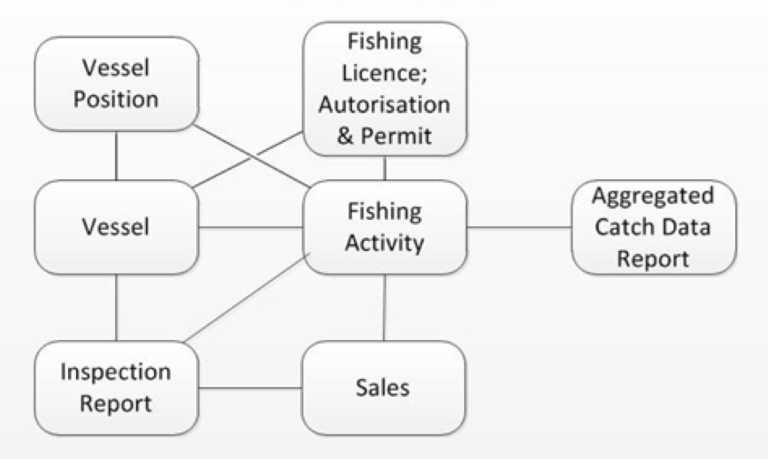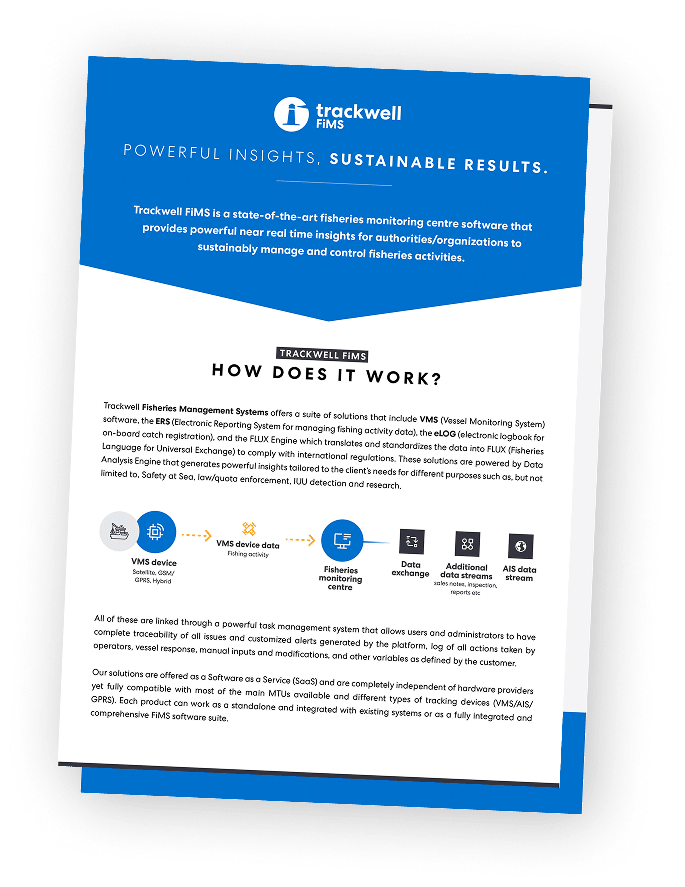Index of content
What is FLUX
The seafood industry across the globe stands at a worth of whopping $140 billion. That should explain the importance of fishing as an industry in the overall economy of the world.
However, buoyed by the sector’s growth, some of those involved in this activity have indulged in malpractices like overfishing Decades of overfishing have led to an imminent crisis in some areas, where fish stocks are over-exploited and not sustainable.
This is an area where fisheries authorities continue to seek new technology in an attempt to address this longstanding issue and move towards sustainable fisheries. The new FLUX standard is aimed at streamlining communication and information on fishing activities. FLUX (Fisheries Language for Universal Exchange) is a UN standard that defines message formats and protocols for exchanging fisheries-related information between countries and organizations. Although still only partly in place, in limited areas of the World, it has been observed to be quite effective in tackling this problem.
FLUX (Fisheries Language for Universal Exchange) is a web service-based communication protocol and message format to replace the previous NAF/HTTPS-based communications of messages between countries and organizations. Originally introduced by the European Union (EU), developed to harmonize the standard for accessing the electronic data related to fish stock management.
It is created for assisting the Fisheries Management Organizations in easy identification and management of data.
Primarily, the fishing practices have been dependent on a paper-based information management model, which is prone to hassles and errors. This is one of the major reasons which has made it quite difficult to trace the origins of fish and has been an impediment to tracking the fish stocks.
FLUX attempts to understand this concern and assist the fishery management organizations in getting access to a genuine mode of accessing all the data related to the fishing vessels and the other allied elements of the fishing activity.
What makes FLUX necessary?
While FLUX has been a powerful standard that harmonizes the fishing information, you might have a question about its need. The major goal of FLUX is to address illegal, unreported, and unregulated fishing. The risk of overfishing has been the prime reason that necessitated the development of the standard code for information collection.
Estimates suggest that close to 3.1 billion people are dependent on fish as it provides 20 percent of their protein intake. The illegalities such as overfishing, unregulated, and unreported fishing have been taking their toll on the fishery as a livelihood and have also been negatively affecting the world’s fish stocks.
The UNECE report suggests that illegal, unreported, and unregulated (IUU) fishing accounts for one-fourth of all fish catches and costs a staggering $23 billion to legitimate fishers every year. It threatens fish stocks, ocean biodiversity, and the economic security of fishing communities.
This is one reason why the UN set itself ahead to form a standardized language for addressing the concerns of fisherfolk, those dependent on the fisheries, and other related communities.
Of course, FLUX may not provide an ultimate or final solution to the problem and resolve it.
However, it does provide a means to help serve as a beginning in achieving that goal. It can help you with reliable and accurate data on the fishing activities and thus allow you to apply real-time fishery information to assist the fishery management organizations in properly managing the activities.
FLUX can also act as a stepping stone towards the regulation of fishing activities and achieving sustainable fishing
What benefits does FLUX offer?
There are several advantages of using streamlined and standard information management of fisheries activities. While it can provide you with accurate and reliable data on all the fishing activities, it can also help remove the sector’s illegalities.
Some of the advantages of FLUX include:
- Simple, easy-to-follow, and accurate information on fishing activities in an effective, transparent, and standardized manner.
- Traceability of the fish right from the fishing vessel to the consumer. It helps find the instances of illegally caught fish entering the marketplace and thus can help reduce overfishing.
- Reduce diversified and unscientific management of data. It can offer a cost reduction to the stakeholders in the business.
- The standard is completely free and open source. The implementation however can be costly and time-consuming. It can be useful and helpful in letting the Fishery Management Organizations get access to completely reliable and efficient data collection. The availability of the standard across the globe can help the fishing community across the world.
- The standard, now “owned” by the UN is meant to be universal and therefore compatible with all other fisheries authorities.
What is the current status of FLUX?
FLUX or Fisheries Language for Universal Exchange has been able to monitor over 85000 fishing vessels over the globe as of now, and the number is growing consistently. The European Union (EU) has made the use of FLUX mandatory in its jurisdiction. The FLUX system is now mandatory for all member states of the European Union.
It has now been spearheading to be included globally as a means of sustainable fishing activity. The technology and the standard is being implemented widely in Europe and expanded to other nations such as Thailand, Brazil, and Uruguay.
Trackwell is currently helping some of its customers, countries, and RFMOs, to implement the FLUX standard so that they may be capable of “future integration and compatibility with the Fisheries Language for Universal Exchange (FLUX) system. This will help assist and support the distribution of fisheries-related data to their cooperating partners.

Summary
The Fisheries Language for Universal Exchange or UN/FLUX is the best tool that can provide you with options for enhanced and improved performance in terms of sustainable fishing management. Of course, the implementation can take a while, but this should be a stepping stone in achieving the best standards.
The proper implementation of FLUX can help cross-nation transparency of the information related to the fish stocks. We will keep an eye on the further development of the information standard and find out how it develops.

